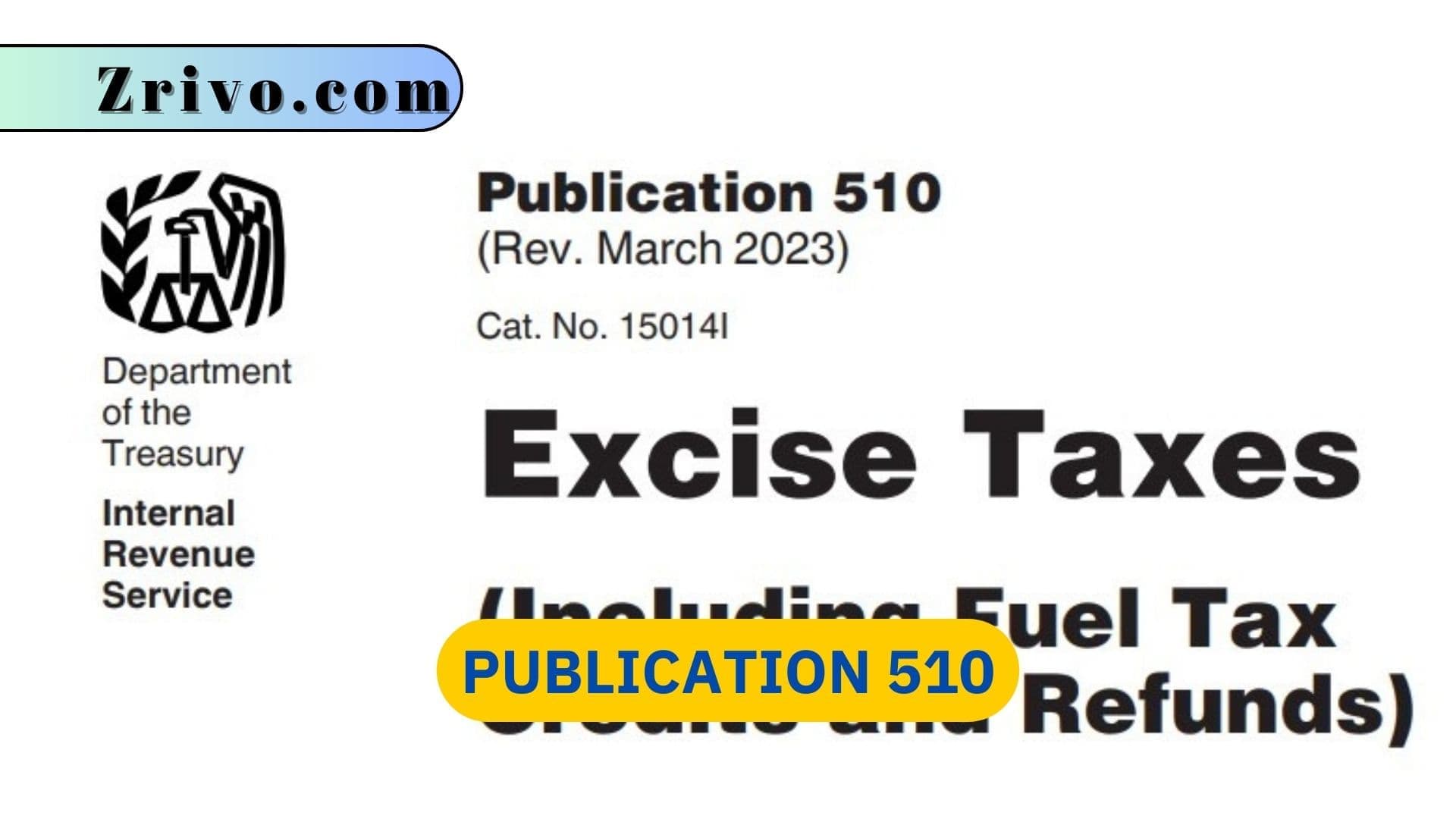
Taxation is integral to any government’s financial structure, providing the necessary funds to support various public services and initiatives. Among the different types of taxes imposed by the Internal Revenue Service (IRS) in the United States, excise taxes play a significant role. IRS Publication 510 is a comprehensive guidebook created by the Internal Revenue Service to assist taxpayers in understanding their obligations related to federal excise taxes. Publication 510 serves as a valuable resource for individuals, businesses, and organizations that engage in activities subject to excise taxes. Publication 510 aims to ensure compliance with the tax laws governing these specific types of taxes by providing detailed information, instructions, and examples.

Publication 510 Content
Publication 510 provides detailed information on various aspects related to excise taxes, enabling taxpayers to fulfill their obligations accurately.
Publication 510 provides a comprehensive introduction to excise taxes, their purpose, and the activities or goods they apply to. It clarifies the distinction between excise taxes and other types of federal taxes. The booklet outlines the necessary steps for registering and obtaining an excise tax registration number. It also explains the filing requirements, including the frequency of returns and the appropriate forms to be used.
Publication 510 also provides specific details on the activities, goods, or services subject to excise taxes. It covers many areas, such as fuel taxes, environmental taxes, communications taxes, and more. Publication 510 offers guidance on calculating the excise tax owed based on the specific taxable event. It also provides information on payment methods and due dates.
What are Excise Taxes?
Excise taxes are taxes levied on the sale, use, or consumption of specific goods, activities, or services. Unlike income taxes, which are based on one’s earnings, excise taxes are typically imposed on the buyer or consumer rather than the seller or producer. These taxes are often applied to goods or activities that are considered non-essential or harmful to public health or the environment. By discouraging the consumption of certain goods or activities, excise taxes serve as a regulatory tool while generating government revenue.

Excise Taxes in Publication 510
Throughout IRS Publication 510, the concept of excise taxes is mentioned extensively. Each chapter and section of the publication provides detailed information regarding the specific excise taxes that apply to various activities or goods. Key areas of focus include:
Motor Fuels and Transportation-Related Taxes: This section covers excise taxes imposed on gasoline, diesel fuel, aviation fuel, and other transportation-related activities.
Environmental Taxes: Publication 510 provides insights into environmental excise taxes, including those imposed on ozone-depleting chemicals, petroleum spill taxes, and certain fuels.
Communication and Air Transportation Taxes: The publication details the excise taxes associated with air transportation, such as passenger ticket taxes, air cargo taxes, and air transportation of persons and property.
Indoor Tanning Tax: This section explains the excise tax imposed on indoor tanning services and the reporting requirements for tanning facilities.
Alcohol, Tobacco, and Firearms Taxes: Publication 510 provides comprehensive information on excise taxes related to alcohol, tobacco, and firearms, including distilled spirits, wine, beer, tobacco products, and firearms.
Ship Passenger Tax: This section provides information on the excise tax imposed on certain transportation of passengers by vessel. It outlines the tax rates, exemptions, and reporting requirements for operators of passenger vessels.
Manufacturers Taxes: Publication 510 covers manufacturers taxes imposed on specific products, such as bows and arrows, coal, tires, and vaccines. It explains the taxable events, the calculation of tax liabilities, and the reporting and payment obligations for manufacturers.
Retail Tax on Heavy Trucks, Trailers, and Tractors: This section addresses the excise tax imposed on the retail sale of heavy trucks, trailers, and tractors. It explains the tax rates, exemptions, and reporting requirements for sellers of these vehicles.
Foreign Insurance Taxes: Publication 510 provides information on the excise tax imposed on foreign insurance policies issued by foreign insurers or reinsurers. It covers the requirements for reporting and paying the tax and any applicable exemptions.
Indoor Tanning Services Tax: This section focuses on the excise tax imposed on indoor tanning services. It explains the tax rate, who is liable for the tax, the reporting and payment obligations, and any exemptions or special rules.